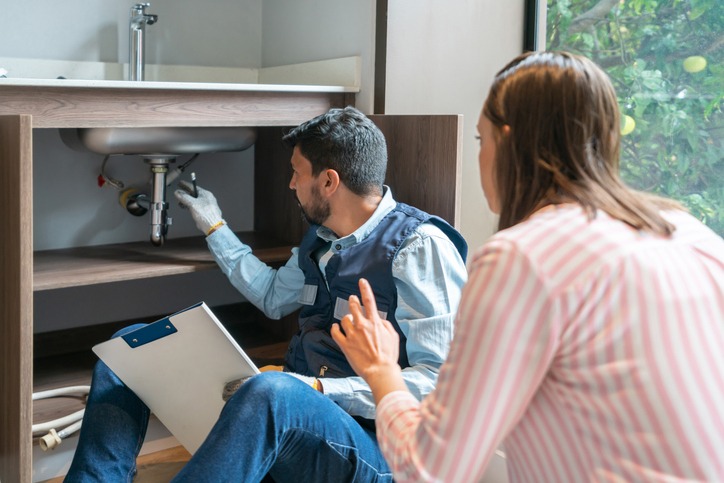Just like your lawn or garden or your heating and cooling system, your plumbing system likewise requires preventative maintenance. Preventative maintenance can help you avoid having to deal with emergency plumbing situations, ensuring that small issues don’t transform into costly headaches. Regular plumbing maintenance will also help keep your system functioning smoothly and functioning at peak performance all year long.
When crafting the ultimate preventive plumbing maintenance checklist, there are six must-haves to include. Our plumbers in Gainesville at Quality Plumbing of Gainesville Inc. offer the ultimate plumbing preventive maintenance checklist. Contact our Gainesville plumbing experts today to schedule an appointment and learn more about our comprehensive plumbing services.
Water Leaks
Among the most common plumbing issues is water leaks. Fixtures and plumbing features that are regularly or constantly in use, such as kitchen sinks, toilets, and garbage disposals, are more likely to experience leaks than less frequently used ones. Yet, leaks can occur just about anywhere in a structure where pipes are present or nearby. Preventive plumbing maintenance prompts you to actively inspect your property for leaks or signs that can lead to leaks in order to prevent a potential leak from going unnoticed and wreaking havoc.
Water Pressure
Assessing water pressure is a key part of any preventive plumbing maintenance service. Too low water pressure is problematic for the use of plumbing fixtures, like showerheads and faucets, but too high water pressure can have its own potential problems. During your preventive maintenance call, our Gainesville plumbers will check the water pressure on your property and ensure it is within the proper range. Too high water pressure can be dangerous and result in exploding pipes and put unnecessary pressure on your plumbing system.
Drain Checks
If the drains on your property are slow-moving, you’ll want to take care of the issue as a preventive maintenance service. Drains that are slow-moving may be a symptom of a bigger issue, such as a blockage or clog in the pipes. Run the tub, shower, and sinks, and see how quickly or slowly the water funnels down the drains. If the drains move slowly, you might try flushing them with a mixture of vinegar and hot water. If they are still slow-moving after you flush them, you’ll want to call Quality Plumbing of Gainesville Inc. for plumbing service.
Water Heaters
Does the water in your shower or bath turn frigid faster than normal? You might be getting the cold shoulder from your water heater as a result of accumulated sediment in the tank, which causes it to become less effective over time. As such, it’s critical to drain and flush the water heater each year to remove any collected sediment, improve functionality, and extend the functional lifespan of your water heater. During a preventive maintenance call, our technicians will perform a comprehensive inspection of your water heater, as well as the heater’s shut-off valve and piping, in order to determine if an issue is likely to occur before it does.
Absent Caulk
Caulking is a critical yet often overlooked component of any space containing a plumbing system, particularly in the bathroom. Caulk offers a waterproof barrier for bathroom walls and flooring. If the caulk is old, crumbling, or missing, moisture and water can seep into the flooring and behind the walls, which provides mold and mildew the ideal environment for breeding and spreading. Take a good look at the tiling or surfaces around the sink, bathtub, and shower, and make note of any missing or outdated caulking. It’s quite simple to repair and replace caulking using caulk tubes and guns.
Toilets
Whether you live on your own, you have a full household, or your business regularly hosts employees or customers, chances are the toilets on your property get visitors every day. Despite our regular use of toilets, it’s not often we think about its components or any preventive care that can help improve the functionality and longevity of our toilets. Be proactive by inspecting the supply valve, fill valve and flush valves. You should also inspect the supply line to look for any corrosion and assess function. If your toilet springs a leak, there can be a significant amount of wasted water and potential water damage.
